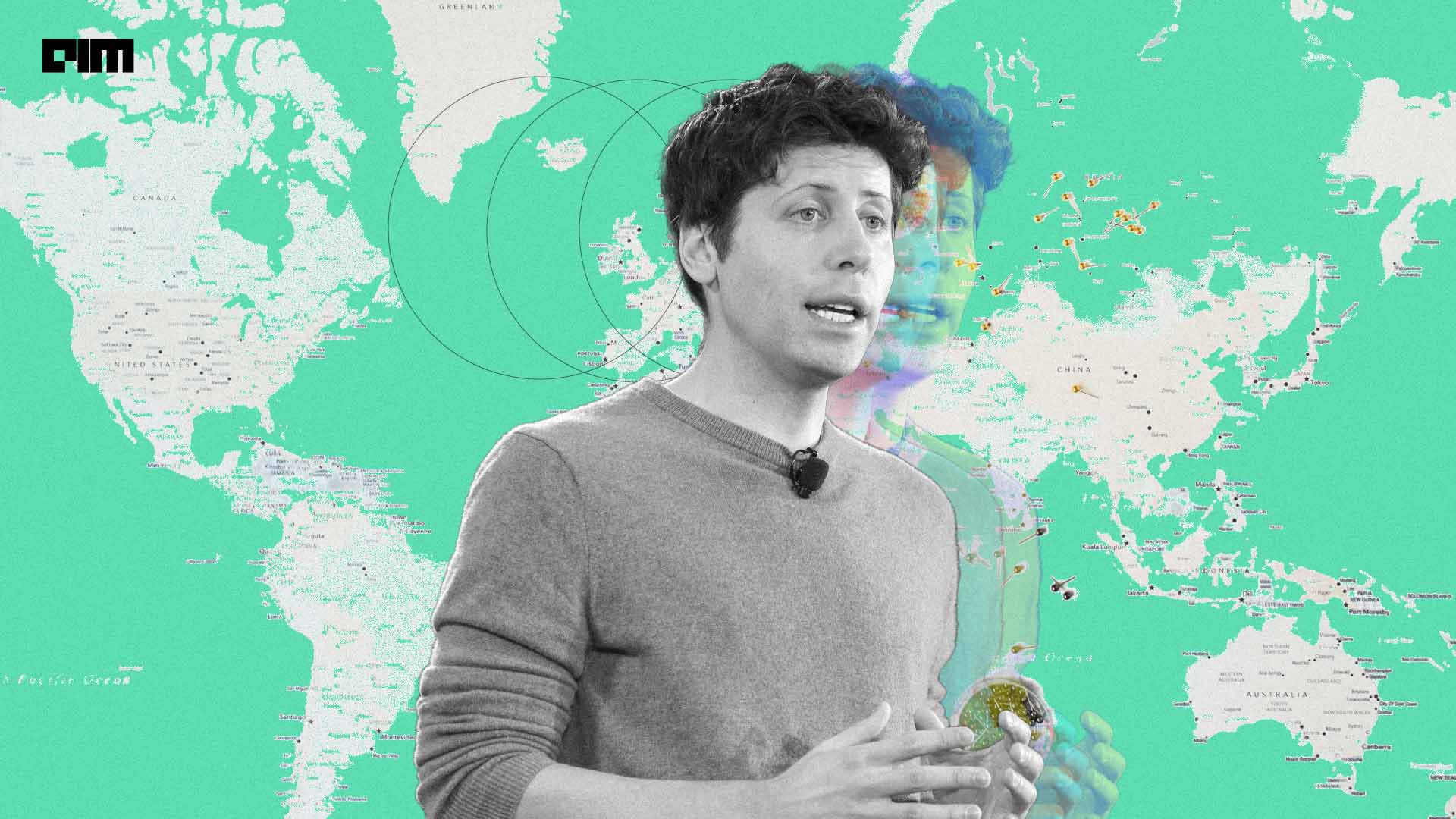
“One of the fun parts of the trip was how diverse and broad the stories are of how people are using it [ChatGPT] at whatever they want to get better at.” In addition to the ‘fun’ part, OpenAI CEO Sam Altman had a lot of interesting conversations and handwritten notes, as confirmed in a Bloomberg interview right after his world tour.
Source: OpenAI Blog| Tom Isaacson
Like a messiah to the people being introduced to world-rage ChatGPT, Altman’s world tour garnered attention at every place he went to, taking you back to the magic Steve Jobs brought with Apple. The difference: Altman’s product reached 1 million users within five days of its launch.
But, what has actually materialised from Altman and OpenAI’s world tour?
Seeds of Expansion
One of the biggest news that came out of Altman and the team’s world tour was OpenAI’s announcement to open a new office in London. Whether the plan was a direct aftermath of his visit, or UK’s proposed plan to expand AI, this will be OpenAI’s first international office outside the US. British PM Rishi Sunak has been trying to push the UK in the global AI map by announcing investments of £100 million for AI development and promoting universities for AI research. He even confirmed that the UK will host the first global summit on AI safety this year with support from the US President.
Aligned with this vision was Altman’s visit which probably expedited the whole push. Sunak also said that OpenAI along with DeepMind and Anthropic will give early access to their models to the UK in order to help them understand any potential risks.
Interestingly, Sam Altman had expressed interest to open an office in Europe considering countries such as Poland and France. He has also been eyeing Japan for starting an office.
Seeping into the Local Roots
In a recent blog where OpenAI highlighted their learnings from the global tour, the company spoke about how they will work towards models that will reflect “individual needs, local cultures and contexts”. They will also focus on improving the performance of models in “languages other than English”.
A bid for maximum adoption and wider reach in Asian countries, OpenAI’s blog is probably a continuation of what Altman told the reporters following his meeting with Japan’s Prime Minister Fumio Kishida — “We hope to build something great for the Japanese people, make the models better for their language and culture.” In South Korea, in addition to Altman expressing his interest in investing in startups, he also mentioned that he would “love to support people building on our platform”.
Ironically, around the same time, Japan’s privacy watchdog warned OpenAI to not collect user’s sensitive data without their permission, and that they will take further action if it has more concerns.
The Shroud on Regulation Continues
The biggest mystery or work-in-progress still revolves around regulation. The tour talk was obviously not complete without speaking about AI regulation. With AI senate hearings, debates and AI pioneers rallying for AI regulation, Altman’s focus was AI regulation and spoking to world leaders about it. Though most countries complied with having to collaborate talks on regulation, India has been clear on having its own stance on the matter.
OpenAI confirmed on their recent blog that the company is committed to developing better rules and practices for their advanced models. It reiterated on their million-dollar grant programs for AI democratisation and cybersecurity where people are empowered to regulate, which pretty much leads to nowhere concrete at the moment.
The regulation irony continues. On the one hand, Altman is pushing for regulation, but on the other, the company was reported to have lobbied the EU to impact the EU AI Act in order to reduce the regulatory burden. While most countries had fruitful conversations regarding expansion and ChatGPT adoption, a few had their own unique way of dealing with Altman and his team. India, for instance, faced a ‘wasted opportunity’ scenario by failing to ask critical questions, but Israel did not shy away from asking questions around open source and RLHF models that visibly made Altman fumble. He even acknowledged the talent pool in the country expressing confidence in the local tech ecosystem.
Setting the OpenAI wheel in motion by visiting 25 cities across six continents, Altman had his hands full. From promised collaborations and expansion in countries across the globe, OpenAI believes to have achieved what they were out seeking — a better future plan for the company. It’s evident that Altman’s global tour got a lot of things working in multiple countries, but AI regulation will remain an unsolved problem.
The post Sam Altman’s World Tour: 3 Reasons Why OpenAI will Dominate the Future appeared first on Analytics India Magazine.